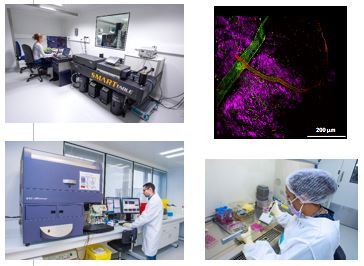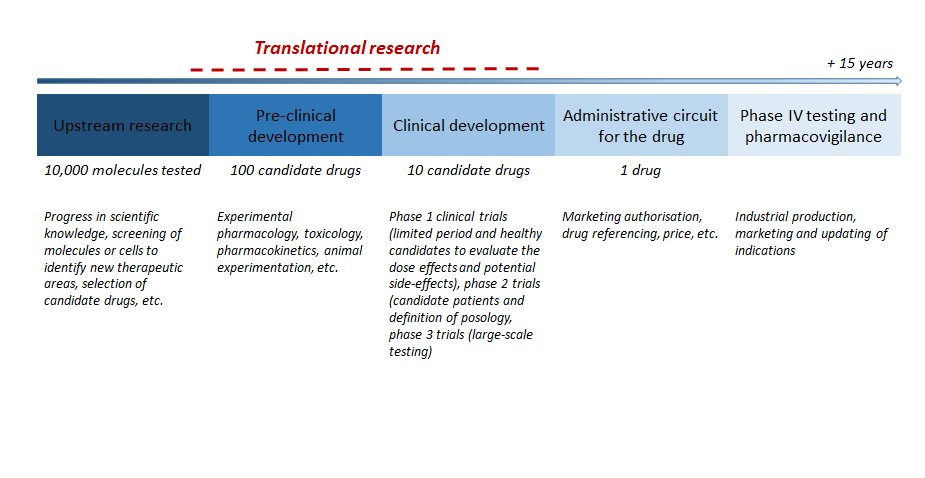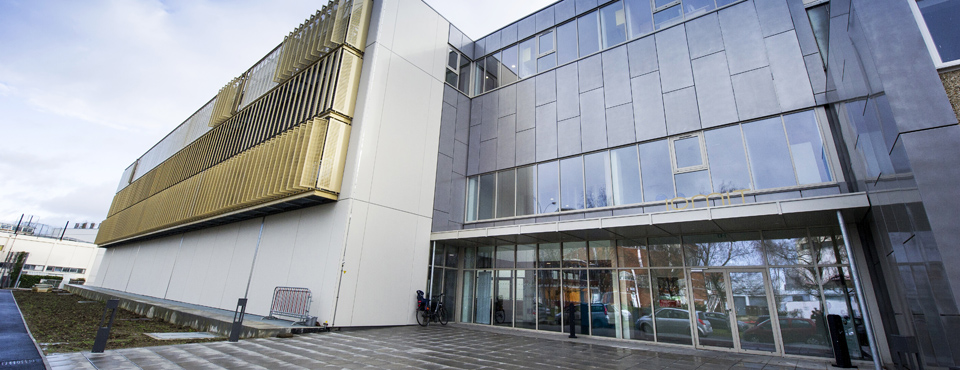Idmit (Infectious Diseases Models for Innovative Therapies) is a national infrastructure for pre-clinical research into human infectious diseases, created in 2012 in order to speed up the transfer of innovations from fundamental research to clinical applications. A specially designed building is being inaugurated on 26th June 2018, on the Fontenay-aux-Roses site of CEA Paris-Saclay centre. This unit, comprising nearly 130 scientists, today brings the expertise of its six founding members together on the same site: CEA, the Pasteur Institute, Paris-Sud University/Paris Saclay, the Inserm, the ANRS and Oncodesign, all of which enjoy a global reputation in the fields of human infectious diseases.
According to the 2013 report from the World Health Organisation, infectious diseases are responsible for more than 60% of child deaths worldwide and more than 25% of adult deaths.
The challenge: to control and anticipate public health problems caused by infectious diseases
Thanks to facilities that are unique in Europe, the Idmit teams carry out research projects on a variety of infectious diseases, such as the HIV/Aids, chikungunya, influenza, yellow fever, dengue and Zika viruses, as well as tuberculosis, whooping cough, chlamydia, malaria and, more broadly, the physiology of and problems affecting the immune system. The Idmit infrastructure will more specifically make it possible to:
- understand the mechanisms of the interaction between hosts and pathogens;
- analyse in detail the molecular and cellular level working of our immune system, in order to facilitate the development of innovative vaccines and treatments;
- develop exploratory and/or monitoring technologies and methods for combatting infectious diseases, such as real-time imaging of the living organism, to characterise host-pathogen interactions, or monitor prophylactic (vaccines) or therapeutic (innovative drugs) effectiveness.

IDMIT houses cutting-edge equipment: A biological resources centre for managing, storing and tracing biological samples generated and used in the research projects; the Flowcytech cytometry platform, for highlighting new bio-markers in immune system cells and for validating new anti-viral strategies and vaccines; the in-vivo imaging platform, at the heart of IDMIT's translational research strategy, with an in-vivo two-photon excitation microscope that is unique in its ability to accommodate non-human primates and capable of producing in-depth images of tissues, plus an X-ray scanner coupled with a positron emissions tomography (PET) machine to study the distribution of a test drug and its whole-body impact. © L.Godart / CEA (top right: © Idmit)
The Idmit infrastructure was created in 2012 with "National Biology and Health Infrastructures" funding from the ANR's Investing in the Future Biology and Health Programme. This confidence was reaffirmed in 2016 by the interim assessment of the research infrastructure by an international jury. The Île-de-France region also helps fund the infrastructure through the State-Region Plan contracts, as does Europe (FEDER programmes), IBiSA (Biology, Health, Agronomy Infrastructures Scientific Interest Grouping) and the Bettencourt Shueller Foundation, which is committed to the life sciences, culture and solidarity.

Diagram of the R&D steps needed to provide the population with a new drug. Idmit is a centre that brings together the skills and equipment of CEA, the Inserm, the Pasteur Institute, the ANRS, Paris Sud University and Oncodesign to work on R&D against infectious diseases, to facilitate and speed up the steps corresponding to "translational" research. © CEA
